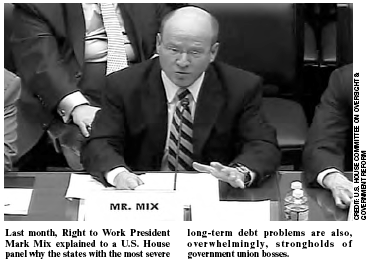DeMint continues sounding alarm about NLRB's attempted Boeing Coup d'état
South Carolina Sen. Jim DeMint takes on the NLRB again his Human Events column:
Like so many federal programs, the National Labor Relations Board (NLRB) has expanded its mission far beyond its original purpose in order to wage ideological battles on the taxpayers’ dime.
The NLRB was never meant to micromanage where companies can locate or how many products they can manufacture, as the NLRB under the Obama administration is currently seeking to do. To stop it, Congress should exercise its power of the purse to return the board to its original mission.
The NLRB was originally established to oversee union elections and investigate violations of federal labor laws. These days it’s doing less of that than ever. In 1980, the NLRB conducted 8,531 union elections around the country, with a budget of $108 million. In 2009, it oversaw only 1,704 union elections, with a budget of $261 million.
Union membership has plummeted by more than 40% since the 1980s. The rapid collapse of organized labor in America’s private sector has reduced the need for union elections—and thus, the NLRB itself—by 80% over the last three decades. Yet its budget—adjusted for inflation—remains essentially unchanged.
Hence the board’s recent drift into freelance assaults on economic freedom: While 20% of its budget may be needed to perform its real job, the board seems to be misusing the other 80% for ideological mischief.
The current NLRB is expanding its mission far beyond the original intent. Consider what Craig Becker, an NLRB appointee who was rejected by the Senate and then recess-appointed by President Obama, has said. “Just as U.S. citizens cannot opt against having a congressman, workers should not be able to choose against having a union as theirmonopoly-bargaining agent.”
Not only has the NLRB launched an unprecedented attack on right-to-work states and job creators, it is now actively silencing nonunion workers in order to give unions a leg up in its legal case against The Boeing Company. This branch of the federal government, charged with protecting workers' rights, is suing a company on behalf of workers who are not in danger of losing their jobs, while refusing to listen to the concerns of three workers whose jobs actually are threatened by the NLRB's own actions.
And the NLRB is now suing two states, Arizona and South Dakota, in an effort to overturn democratically passed laws that protect a worker's right to a secret ballot in those states. The NLRB is actually taking the stance that union bosses should be able to force workers to sign cards in public to join a union, a practice known as "card check," instead of making the decision in private without fear of intimidation.
This is not enforcement—this is extremism.




